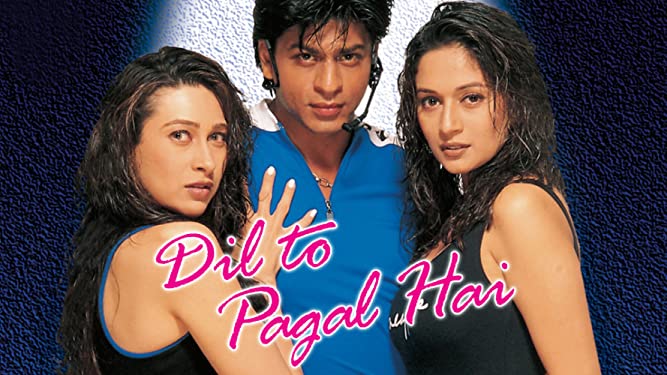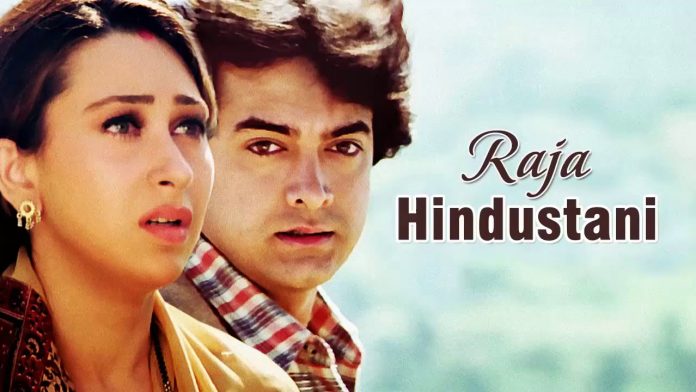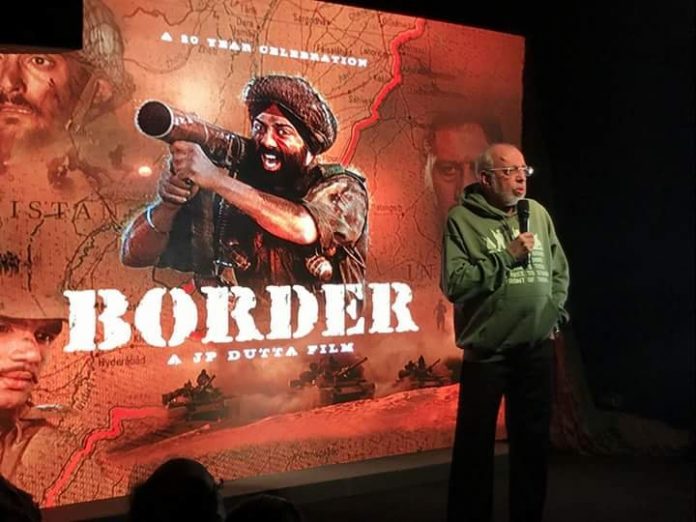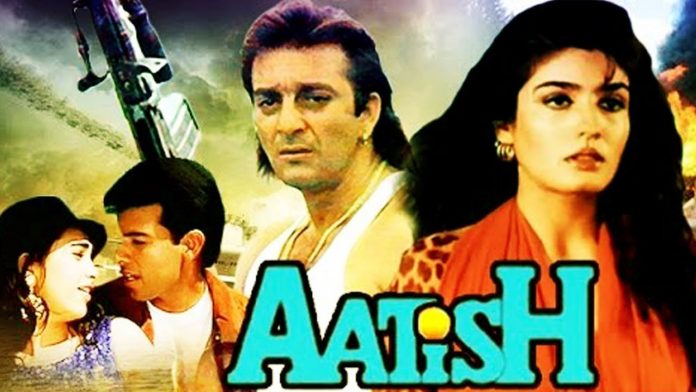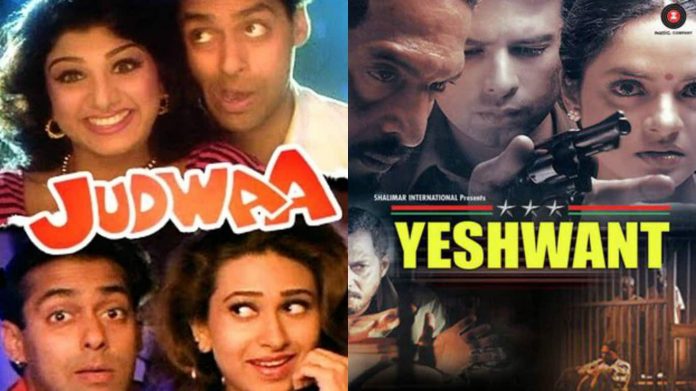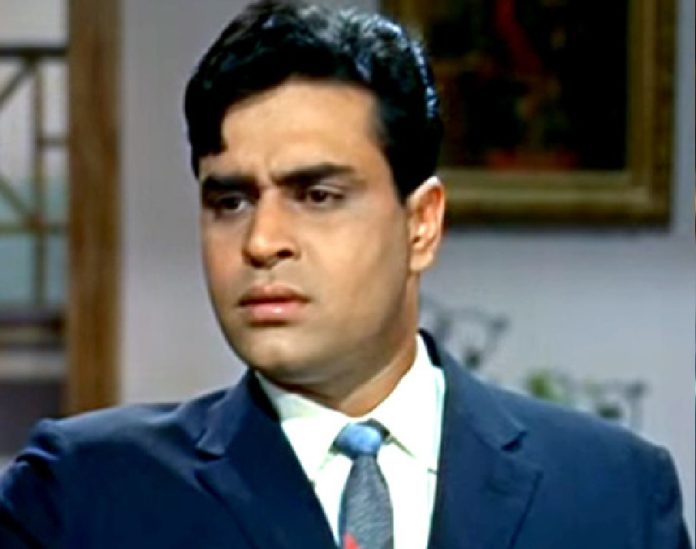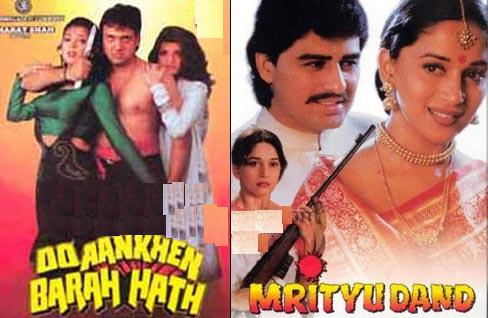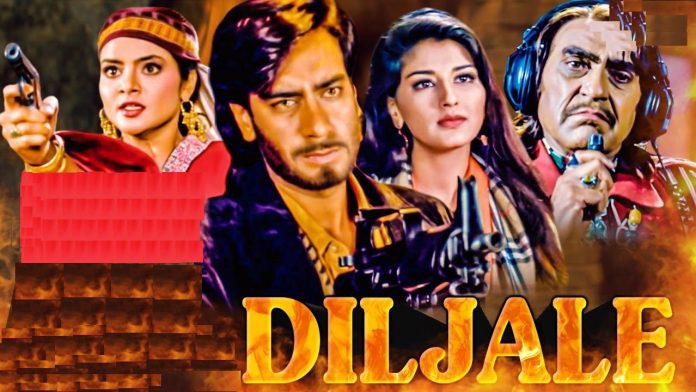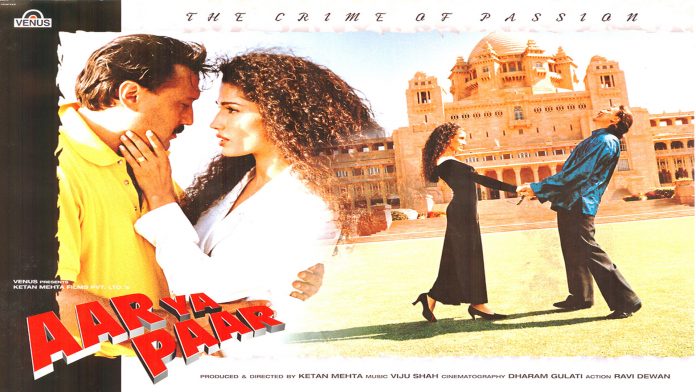CINEMA BANDH MAKES INTERNATIONAL NEWS
The cinema closure in Bombay, the nerve-centre of the largest film industry in the world, and in the rest of Maharashtra has made international news. Your editor was telephonically interviewed on the topic by BBC London for BBC World News (telecast on 8th January), by BBC Radio, by BBC Radio (Hindi) and by German Radio.
Cinema Closure In Maharashtra
Election Code Causes Stalemate
Govt. Goes Back On Its Word
The Maharashtra cinema closure entered its eleventh day today, with no early settlement in sight. A stalemate has developed over the issue of entertainment tax concession, which is the cause of closure, due to the applicability of the election model code of conduct in Maharashtra, which makes it impossible for the government to grant any concession, relief or benefit to anybody while it (code of conduct) is effective. The code has come into force from 9th January, ’97 and will remain in operation till 5th March, ’97 in view of the impending elections to nine municipal corporations, 30 municipal councils and 319 panchayat samitis. Technically, therefore, even if the government wants to give some relief to the industry, it cannot do so now until 5th March, ’97. No announcement or implementation of concessions or reductions can be made during this period, according to state election commissioner D.N. Chaudhary. Since the office of the state election commissioner is created under the constitution of India, it is an autonomous one. D.N. Chaudhary’s interpretation is thus absolute and the government can have no recourse to move in the matter.
It is a different thing thought that the government is not in a mood to grant any concessions or even extend the earlier concessional rate of entertainment tax of 50%. In fact, the action committee of the film industry (ACFI) met Maharashtra cultural affairs minister Pramod Navalkar on 6th January and submitted proposals to him on the granting of which they would call off the closure. The industry leaders and Navalkar arrived at a consensus formula whereby the 50% rate of entertainment tax would be maintained in case of nett admission rates upto Rs. 40, 62.5% tax would be charged for nett admission rates over Rs. 40 and upto Rs. 60, and 100% tax would be levied on nett admission rates in excess of Rs. 60. This consensus formula was to have been passed in the cabinet meeting the following day (7th January) after which the cinema closure was to have been called off. But the industry got a shock when the cabinet rejected the said proposal agreed upon by Navalkar himself.
The action committee’s hopes of reopening the cinemas from 8th January were thus shattered. Even as it decided to continue the stir with renewed vigour in view of the government’s apathy, came the news of the election code of conduct.
In the meantime, cinemas in the Marathwada region of Maharashtra, which did not fall in line with the cinemas in the rest of the state, are continuing to function even now. They are collecting entertainment tax at the new rate of 100% from 1st January, 1997.
Meanwhile, the cinema stir took a curious turn on 8th January with cinema employees owing allegiance to the Mumbai Labour Union alleging that cinemas made substantial profit even as cinema owners have declared that they would be forced to shut down if entertainment tax concession was not granted.
The workers complained that while cinemas raked in money, workers’ salaries were abysmally low. About 30 workers staged a dharna near Mantralaya to press their demands for more wages.
The action committee, on its part, dismissed the dharna as a failure and described it as more of an effort to gain some foothold in the labour movement and to prove its (Mumbai Labour Union’s) existence. According to a press release of the ACFI, workmen of 60 cinemas in Bombay are members of the Theatre Employees Union (TEU) which has appreciated that the ongoing agitation will even benefit their employees, and has assured the action committee of their full support to the cinema closure.
The press release also clarifies that salaries of all cinema employees were being paid during the closure and that no permanent employees had been retrenched or dismissed, as being made out in a section of the press.
Opinion is divided about whether the cinema closure should now be continued or not in view of the election code of conduct. Confusion prevails in the industry over the exact current position. From what the state election commissioner has stated (read box printed separately on this page), there should now be no room for confusion.
Well-known Marathi film producer Satish Kulkarni told Information, “We must open our eyes and take cognisance of the ground realities. The industry would do well to admit that no benefit can come from the government till March 5. There is, therefore, no sense in continuing the closure.” On the other hand, Satara exhibitor Kanhaiyalal Navandhar (Radhika cinema), feels, the closure should continue even though no relief can be granted till 5th March. Says he, “If the industry calls off the closure, it will in effect be accepting the rate of 100% entertainment tax and once it does so, it will be closing its doors to relief of any kind for the next 10 years. That will be suicidal.”
N.N. Sippy and Balkrishna Shroff maintained that the industry was not seeking any relief, it was just asking for status quo to be maintained and, therefore, the election code of conduct was not applicable to the industry. According to them, status quo would mean a 50% tax rate as before 1st January, 1997.
In the meantime, a delegation of distributors and exhibitors of C.P. Berar called on Maharashtra finance minister Khadse in Jalgaon on 10th January and pleaded for a concession in tax. He gave a patient hearing to the delegation which included S.K. Surana and Mahendra Lunkad and promised to arrive at a consensus formula. Khadse is expected in Bombay on 13th January when the members of the action committee are likely to meet him.
According to CCCA president Santosh Singh Jain, “Mr. Khadse reportedly asked the delegation to reopen the cinemas and pay 100% entertainment tax in view of the government’s inability to grant reliefs due to the election code of conduct.”
EFFORTS TO END STALEMATE ON
Even as the stalemate over the Maharashtra cinema closure continues, members of the action committee of the film industry (ACFI) are busy meeting ministers and other politicians in the state to arrive at some settlement. They called on BJP’s Bombay unit president Kirit Somaiya on 10th January to apprise him of the situation. Efforts were also being made to contact Maharashtra deputy chief minister Gopinath Munde.
In the meantime, FMC president G.P. Shirke met Shiv Sena leader Bal Thackeray on 9th January to seek his mediation to end the impasse. It is reported that Thackeray has asked chief minister Manohar Joshi to approach the state election commission and seek clarification regarding the demands of the cinema owners, and convince it of the need to end the deadlock despite the election code of conduct. According to Shirke, Bal Thackeray was in favour of 50% entertainment tax.
INCORRECT INTERPRETATION
There is a general feeling in the film industry that the election code of conduct in Maharashtra does not apply to the entertainment tax relief sought by the film industry since the industry is not asking for a new concession or relief but rather for an extension of the prevailing concession. But this is not correct.
The prevailing rate of entertainment tax with effect from 1st January, 1997 is 100%, and not 50%, as assumed by those who feel that the code does not apply to the industry. So what the industry is asking for from the government is a concession. Had the code come into force before 31st December, it would not be applicable in the case of entertainment tax on cinema admission till 31st December because till that date, the rate of tax was 50%. In that case, the government could have extended the 50% tax rate without attracting the provisions of the code of conduct. But even in that case, further relief, as being demanded by the industry (25% entertainment tax), could not have been granted.
In any case, until the code of conduct remains applicable (till March 5, 1997), no relief can be forthcoming from the government,unless, of course, an exception is made in the case of the cinema industry.
What The State Election Commissioner Has To Say
Film Information contacted the Maharashtra state election commissioner, D.N. Chaudhary, on telephone on 10th January for his comments on the reliefs sought by the film industry in entertainment tax.
According to Chaudhary, “No reduction or relief or concession in entertainment tax can be given by the government under the election code of conduct.” When asked to comment on the industry’s views that they were not seeking any concession but were only asking for the same rate of tax as existed, D.N. Chaudhary said, “The 50% rate of tax was in force, it is not presently in force. From 1st January, ’97, the rate of entertainment tax is 100%, and so any rate less than 100% would amount to a relief or concession. How then can the industry claim that it is not seeking a relief? And if it isn’t a relief, the government would have to explain so to the election commission.”
When asked about a report in a section of the press on 10th January that Bal Thackeray had asked Maharashtra chief minister Manohar Joshi to approach the state election commission and seek clarification regarding the demands of the striking cinema owners and somehow convince it of the need to end the deadlock, D.N. Chaudhary replied curtly, “Nobody has contacted me.” When further queried whether a settlement/relief was a possibility if the chief minister approached him, Chaudhary declined to comment. When pressed further for his reply, he said a trifle irritated, “Why should I talk in the air?”
D.N. Chaudhary summed up the discussion by saying that the industry must wake up to the realities and appreciate that no relief can be granted till 5th March, 1997.
Need of the Hour: Unity
So now what? This is the question uppermost in all minds, not only in Maharashtra but all over India. The industry has reached a dead-end, at least till March 5. It seems to have come to a no-win situation. Of course, miracles never cease and, you never know, the state election commissioner just might grant permission to give reliefs to the film industry in the matter of entertainment tax even while the election code of conduct is applicable until March 5, 1997. Or will he?
The exact position should be clear in a couple of days more. If no concession is forthcoming from the government, it may not really be practical to continue with the closure till 5th March. A better idea may be to reopen cinemas without further delay and, of course, pay entertainment tax at the enhanced rate of 100%. But the industry can make its stand clear that cinemas would once again down shutters after March 5, if the government did not give it substantial reliefs. And at that time, the erring Marathwada exhibitors could also be asked to support the bandh.
An alternative to this would be to continue with the closure but this is fraught with dangers. There is the risk of small exhibitors losing patience and threatening to reopen their cinemas. If they do so, it will be too embarrassing for the industry and, in that case, their dreams of obtaining reliefs from the government would undoubtedly be shattered.
The action committee should call an emergency general meeting of all exhibitors and distributors of Maharashtra to decide the future course of action. Small exhibitors would have a lot to say in this meeting and their words will carry a lot of weight.
Anyway, whatever is to be done, must be decided once and for all and soon. Nothing should be left ambiguous. For, ambiguity can be one sure cause of the industry’s unity starting to show cracks. And while the industry can, in the extreme case, afford to pay even 100% entertainment tax, what it cannot afford under any circumstances is to become disunited. Unity is the need of the hour, unity at any cost, at all cost.
– Komal Nahta
GOVERNMENT’S BLUFF
The 50% concession in entertainment tax in Maharashtra was given by the Congress government in September ’94. When it was first given, it was for one year. This concession was renewed for a further period of one year in September ’95 by the Shiv Sena-BJP government.
It is rather strange that the Shiv Sena-BJP government is now giving press statements that the concession was given to the industry for just one year as a cinema centenary gift, because it was never mentioned in 1994 that the concession was a gift, centenary or otherwise.
Cinema celebrated its centenary in 1995 and 1996, and it sounds strange that the government may have given a gift before the centenary year even started! Further, one wonders how the Shiv Sena-BJP government can term the concession granted by the Congress government, as a centenary gift when the latter never described it as such while granting it.
Is the Sena-BJP government just looking for an excuse to not renew the concession? Your guess is as good as ours. But the least the government could have done was to have come up with a more plausible and believable excuse, not a lame one like this, which on the face of it looks false.
THEMATIC CLASSIFICATION OF INDIAN FEATURE FILMS CERTIFIED DURING 1996
Social/Crime 625
Action/Thriller/Stunt 12
Horror 10
Devotional 08
Mythological 07
Children’s 05
Historical 04
Fantasy 03
Comedy 02
Political 02
Adventure 01
Legendary 01
Biographical 01
Social-comedy 01
Social-mythological 01
Total 683
INDORE DIARY
• In every office of C.I., there’s one common discussion — that of the sky-rocketing prices of films. Distributors in the Film Colony of Indore wonder where these prices will stop. In the alternative, they will have to stop buying films, they say.
• The Kapoors of Bharti Film Distributors have almost stopped buying new films because they find the prices too prohibitive. Their last major release was DDLJ. Says veteran Laxminarayanji Kapoor, “We’ve distributed about 750 films in 48 years, but the prices today are beyond our comprehension.”
• The Tolani family is passionate about its business, as is evident from the money they’ve spent on their twin cinemas, Sapna and Sangeeta. Despite dad Arjundas Tolani and illustrious sons Sanjay and Rajiv being stationed in Bombay, the cinemas are well-maintained and are the most sought-after for prestigious films. Impeccable sound system is another hallmark of the cinemas which have a huge common lobby. Raja Hindustani is in its 8th week at Sapna and, believe it or not, all shows so far have been house-full! O.P. Goyal, who controls the cinemas, is constantly on the lookout for quality films to match the quality of the cinemas!
• The CCCA’s Film Bhawan is a big building which reminds of the ceiling penalty which had been imposed by the CCCA on its erring distributor-members. The penalty generated enough funds for the building so that it ought to be rightly called ‘Ceiling Bhawan’ or, better still, ‘Penalty Bhawan’. The CCCA has rented out a good portion of the Bhawan to a hospital and earns handsomely every month. There’s an open land at the backside of the building which may soon house a club etc.
• The Cine Club of Indore is the best thing about the Indore trade. It is a meeting place for distributors, exhibitors and bookers, and the camaraderie among the members has made it achieve an enviable place for itself in the trade. President Ashutosh Shukla, fondly called Chhota Pahelwaan, organised a function of the Cine Club on 6th January to felicitate Komal Nahta and Gautam Mutha of Film Information and Vinod Mirani of Box-Office. J.P. Chowksey, Ratanlal Garg, Ramesh Sureka, Govind Acharya (Rajshri), O.P. Goyal, Joharilal Jhanjharia and Ashutosh Shukla made brief speeches.
• Sunil Enterprises, Indore, has reason to celebrate. Not only has its Raja Hindustani surpassed DDLJ wherever it is running, it is also ahead of HAHK..! so far. The concern’s next is Hero No. 1.
• The biggest buyers of 1997 in C.I. are undoubtedly Shri Bableshwar Films. The Advani brothers have for release such big films as Itihas, Ishq, Maharaja, Deewana Mastana, Karobaar, Pyar Kiya To Darna Kya…. In fact, the new year began on a lucky note for Sunil Kumar Advani when his wife delivered a baby boy on 1st January at 1.26 a.m.
• Hemant Vyas has come a long way. Starting out as manager of Darshan Sabharwal’s distribution office, Hemant ventured into independent distribution by buying small films. Today, Hemant is as big as the big films he buys. He released Sabse Bada Khiladi and Khiladiyon Ka Khiladi recently. He has just acquired Venus’ Mela.
• J.P. Chowksey has left behind his unlucky days. He was lucky in Prem Granth and now, his Maachis is doing record business. It is expected to do over 30 lakhs in C.I.
• Jitendra Jain has ably trained his son, Bittu, who now manages the show at Sanman Films. The concern has been lucky in their deals with ABCL (Bandit Queen, Bombay, Tere Mere Sapne).
• Ashok Chaudhary of B.R.A. Enterprises considers the Maharashtra cinema closure a blessing in disguise because his Judwaa has had to be postponed due to the bandh. In the meantime, the music of Judwaa has really caught on.
– Gautam Mutha






























